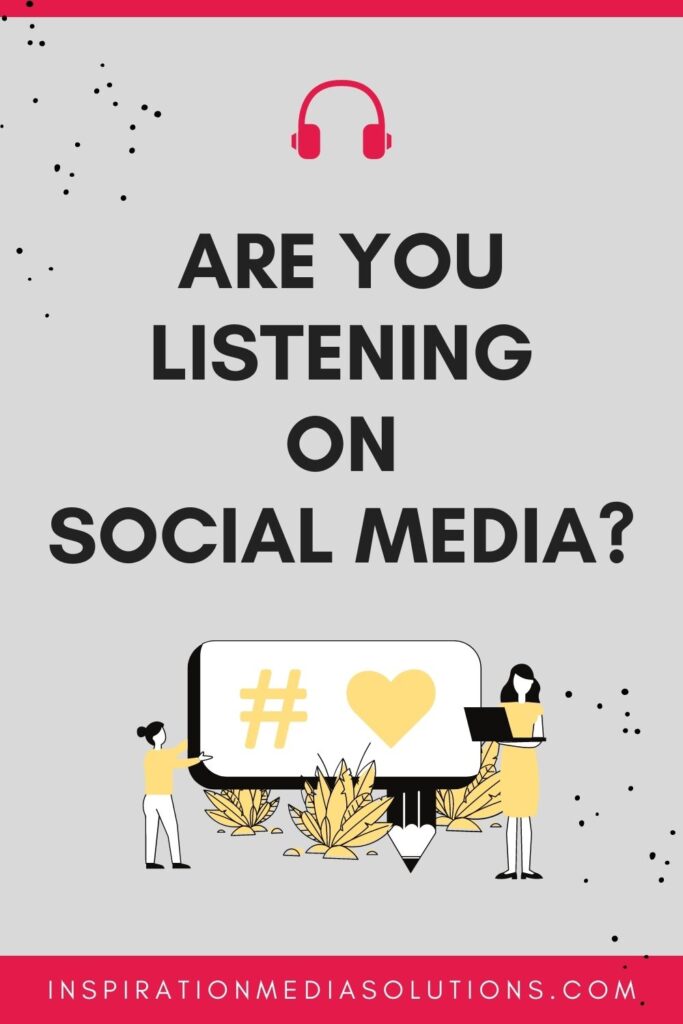Something that many small businesses don’t realize they can do is something we call social monitoring and social listening. Social monitoring is actively looking for mentions and conversations that pertain to your brand, products, competitors, plus topics and keywords of interest across the web. While social listening is how you track, analyze, and respond to mentions of your brand, products, etc. Why is this important? By paying attention and listening to your audience, you’ll start to develop a better idea of what they relate to, what interests them. This allows you to learn how to relate to your audience.

What can you do with social listening? Here are a few things:
Social listening allows you to measure the performance of your social media and other content strategies. What resonates better with your audience? A familiar tone, humor, or something else? Do videos work better than static images? Study how people that are talking about your brand speak. Try to recreate their manner as authentically as possible.
Searching for mentions of your brand will help you find people that don’t already follow you, but may love your brand. Make sure to give those posts a like, and if relevant, creatively share it and give them a shout out. This is the 1-on-1 interaction that social media users appreciate! Sometimes you may come across negativity when searching your brand. You may have missed it if you hadn’t been listening, but since you are, you can respond in a timely and appropriate manner and help turn to the tide of the conversation.
A great advantage to social listening is identifying your loyal fans. Did you know that 81% of US online consumers are influenced by their friends social media posts in regards to brands vs 78% of US online consumers that are influenced by the posts of the brands they follow on social media? Think about it. How many times have you looked up a brand, product or service after seeing a friend post a glowing review? Locate your biggest fans and thank them for their support. If they have a large social following, is their a way that you can work together through sponsored content?
Lastly, don’t forget to keep an eye on your competitors. Search for mentions of their brand not only to learn from what they are doing, but to see what people are saying about them. If you come across an unhappy customer of a competitior, this is your opportunity to reach out – in a helpful and authentic way. Let them know that you are available and willing to help and provide them a way to reach out, but don’t bash the competition.
There are lots of free tools to help small businesses listen in on social media, here are just a few: Google Alerts, social mention, and Hootsuite.
